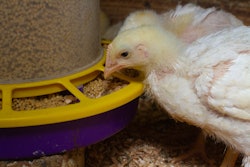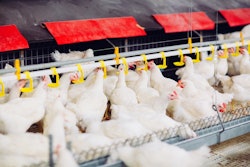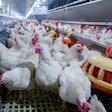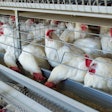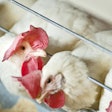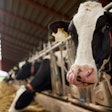
Researchers from The Pirbright Institute in the United Kingdom say they have developed a technique for more rapidly manufacturing novel vaccines for avian bronchitis, or IBV.
Existing vaccines for IBV are made by growing strains of the virus in chicken eggs until the virus eventually weakens to an attenuated form that will trigger an immune response without causing infectious symptoms, according to Dr. Sarah Keep, co-lead researcher on The Pirbright Institute's IBV project. This time-consuming process makes it difficult to respond to emerging strains of IBV, she said, which in turn reduces vaccine efficacy.
But the new technique developed by The Pirbright Institute allows for the virus to be grown much more quickly, in cultured cells known as Vero cells. Pirbright researchers were able to take the spike protein of the Beaudette strain of IBV — a lab-adapted strain of the virus that is capable of growing in cultured cells but that does not trigger a strong enough immune response to be used as a vaccine—and replace it with the spike protein from the M41 strain of IBV. The spike protein is a structural component of coronaviruses — including IBV — that helps the virus enter and infect the cells of its host.
Using the recombinant virus that resulted from this process as a vaccine induced 100% protection against the M41 strain of the virus in trials by Pirbright, Keep said.
“Our research shows reverse genetic vaccines could be effective in offering a one-dose solution against many strains of IBV and potentially lead to the creation of vaccines for other viruses in the coronavirus family,” Dr. Erica Bickerton, also a co-leader on the project, said in a statement.
IBV is an endemic virus in many countries, with multiple strains of concern circulating around the globe, Keep said. Infected birds don't gain weight, and infected layers produce fewer and lower-quality eggs with softer shells.

